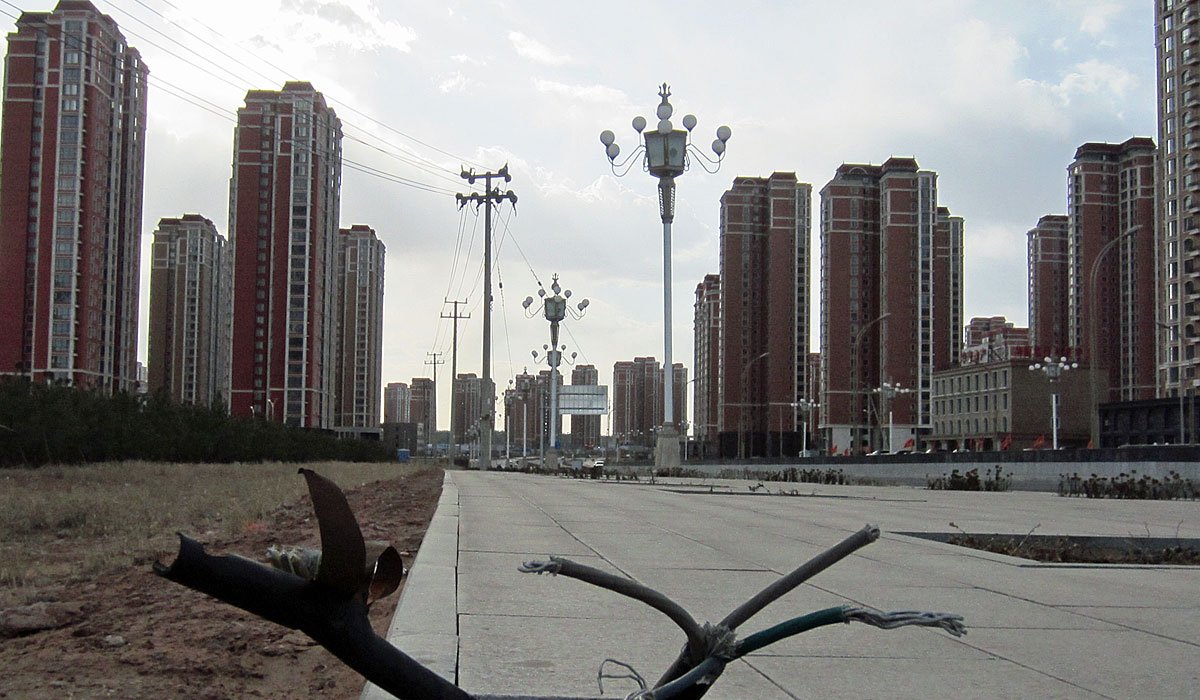One of the many under‑populated cities visited in this book is Hallstatt, on the outskirts of Huizhou, in Guangdong province. It is a precise copy of Hallstatt in Upper Austria. “The resemblance to the real Hallstatt went down to the smallest detail … the sounds of birds tweeting were playing throughout the streets from hidden speakers … and The Sound of Music soundtrack played on an endless loop could be heard everywhere.” Wade Shepard was inspired to visit such places after his first, more mundane, sighting of a ghost city. He went to Tianti, in Zhejiang province, by accident getting off a bus at the wrong stop, and found a series of empty high-rises and office blocks so quiet he could hear only the wind and his own breathing. The buildings “all appeared to be crisp and new, inside they were dark cavities, devoid of inhabitants and interior fit-out”.
Many western observers, on coming across these places, have described them as surreal, or like stage sets – Shepard cites various reports, from Al‑Jazeera to internet “10 Crazy Things About China” webpages. They often conclude that China’s property boom is fake, made up in large part of Potemkin cities set up as property boondoggles. As this book makes clear, that is not quite the case. Shepard has written an account of the economic rationale behind the more apparently strange and freakish aspects of the country’s urbanisation; a crash course in how Chinese capitalism, if that’s what it is, actually works.
The first thing to understand is that nobody in China actually owns property. Land is still nationalised, and leases are sold for up to as many as 70 years. That China lacks property, however, doesn’t signify a shortage of property developers. In fact, the “property” market described here sounds as extreme, if not more so, than that of London, with extortionate rents, a paucity of social housing (a pitiful 3% of all construction) and, most of all, the use of apartments and houses as investments – it is normal for middleclass Chinese to borrow their way into owning several unoccupied flats, even if they don’t have one to live in. A version of this practice is now familiar in the UK; who influenced who is an open question.

